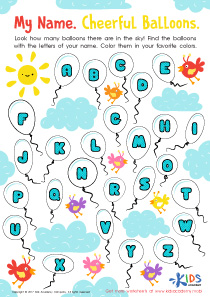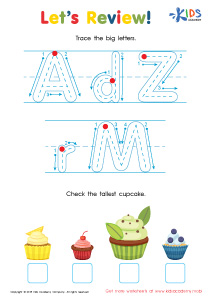Sound recognition Normal Preschool Phonics Worksheets
3 filtered results
-
From - To
Introduce your preschoolers to sound recognition with our Normal Preschool Phonics Worksheets. Expertly designed to develop early literacy skills, these engaging and interactive worksheets help young learners identify and differentiate sounds with ease. Each worksheet features fun activities like matching sounds to pictures, tracing letters, and finding words that begin with the same sound. Perfect for reinforcing classroom learning or enhancing at-home study sessions, our worksheets make phonics practice enjoyable and effective. Give your children the tools they need to master phonetic skills and pave the way for future reading success with Kids Academy’s comprehensive phonics resources.


Rhyming Words Rhyming Worksheet


Long and Short U Worksheet


First Words: Picture Rhymes Worksheet
Sound recognition and preschool phonics are crucial building blocks in early childhood education, and parents and teachers should prioritize them. During the preschool years, children's brains are especially receptive to learning sounds, which form the foundation for reading and language development. Sound recognition helps children differentiate between various phonemes—the smallest units of sound—which is essential for understanding how words are constructed.
Phonics instruction links these sounds to letters, enabling children to decode words when they begin to read. It improves their ability to pronounce words accurately and comprehend what they are reading. Early grasp of these skills fosters confidence and eases the transition to more complex reading and writing tasks in later grades.
Moreover, developing sound recognition and phonics skills in preschool can help identify potential learning difficulties early, allowing for timely intervention, which can significantly improve educational outcomes. Beyond academics, mastering these skills supports overall cognitive development, including memory, attention, and listening abilities.
Parents and teachers who emphasize sound recognition and phonics give children a head start in literacy, opening doors to academic success and lifelong learning. Early mastery in these areas lays the groundwork for proficient communication and richer educational experiences, making this an essential focus in early childhood education.

 Assign to My Students
Assign to My Students
















